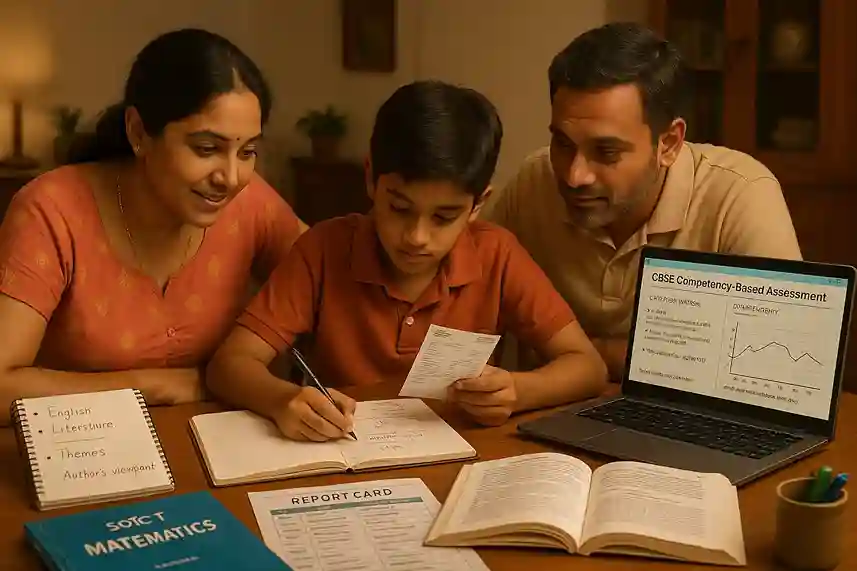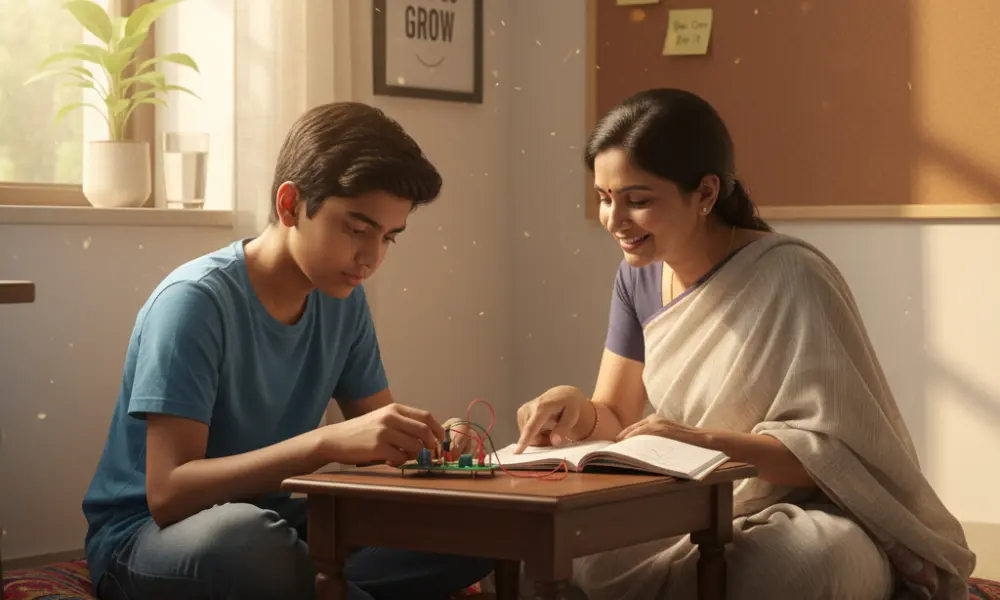Understanding Competency-Based Learning in CBSE: A Parent’s Guide
A practical guide for parents to understand CBSE’s shift toward competency-based learning
Competency-based learning is now central to CBSE’s reforms under the National Education Policy. This blog explains what it means, why CBSE has adopted it, how assessments work, and how parents can support their children at home and in school.

Competency-based learning is one of the biggest shifts happening in CBSE schools today. As part of India’s National Education Policy 2020, CBSE has been steadily moving away from rote memorization and toward an approach that values application, problem-solving, and real-life skills. For parents, this change may feel unfamiliar, but it offers immense benefits for students’ long-term development. This guide will help parents understand what competency-based learning really means, why it matters, and how they can support their children through this new system.
What is competency-based learning
Competency-based learning focuses on mastering specific skills or abilities rather than simply covering syllabus content. Instead of asking “Did the child finish the chapter?” it asks “Can the child apply the concept in a real-life situation?” For example, rather than memorizing the formula for speed, students might analyze a case about train timings and use the formula to solve a practical problem.
Why CBSE is adopting this system
CBSE’s adoption of competency-based learning is guided by the National Education Policy. The aim is to prepare students for the modern world, where success depends on problem-solving, communication, and adaptability. Traditional exams encouraged repetition and cramming, while this system rewards deeper understanding. By 2025, CBSE question papers are expected to include more than 40 percent competency-based questions.
“The move toward competency-based learning ensures that students are not just exam-ready but life-ready.” — CBSE Policy Document
How competency-based assessments differ
Assessments now measure how well a student can apply knowledge, not just recall it. Instead of asking direct factual questions, papers may include case studies, data interpretation, or problem-solving scenarios. For instance, in Social Science, students might analyze a news excerpt and relate it to democratic values taught in NCERT. In Maths, they may solve a real-life budgeting problem rather than a routine calculation.
Examples of competencies in subjects
Science
Competency: Understanding the impact of human activity on the environment. Students might interpret graphs on air quality and suggest solutions linked to NCERT topics on pollution.
Mathematics
Competency: Applying algebraic concepts to daily life. A question may present an electricity bill and ask students to calculate total cost using equations.
English
Competency: Analyzing texts for themes and values. Students may read a short passage and identify the author’s viewpoint, linking it to their literature syllabus.
Social Science
Competency: Connecting historical lessons to civic understanding. Students might compare colonial trade systems with modern globalization trends.
Benefits for students in the long run
Competency-based learning builds lifelong skills beyond exams. Students learn how to think critically, communicate effectively, and apply knowledge in different contexts. This reduces exam stress since the focus shifts from cramming to understanding. It also prepares students for higher studies and careers where analytical and problem-solving skills are essential.
What parents should look for in schools
Parents can play an active role by checking how schools implement competency-based learning. Look for classrooms where teachers use projects, case studies, and group discussions instead of only lectures. Schools should encourage open-book tasks, real-life applications, and formative assessments. Report cards may also include skill-based feedback alongside marks, giving a clearer picture of a child’s strengths.
How to support children at home
At home, parents can support competency-based learning by encouraging curiosity and practical application. Simple steps include:
Asking children to explain what they learned in their own words
Encouraging them to apply maths in shopping or budgeting
Discussing news articles to build critical thinking in social science
Using educational apps like Edzy that gamify practice through quizzes, flashcards, and case study exercises
Future of competency-based education in India
The future of CBSE is firmly rooted in competency-based learning. Over the coming years, more question papers will include application-based tasks, and digital tools will play a bigger role in assessments. Parents can expect a gradual shift in school teaching methods, with more focus on projects, collaboration, and cross-disciplinary learning. By embracing these changes early, students will be better prepared not just for board exams but for life beyond school.
Competency-based learning is not just a policy shift, it is a mindset change. Parents who understand and adapt to this system will help their children thrive in a world that values skills, creativity, and adaptability over rote memorization.
Suggested blogs

Screen Time Management for Students: A Parent’s Step-by-Step Guide
A comprehensive guide for parents to manage their children's screen time effectively.

How Parents Can Build a Growth Mindset in Their Children
Empower your child with a growth mindset for lifelong learning.

Peer Pressure vs Healthy Competition – Helping Your Child Stay Motivated
How to differentiate peer pressure from healthy competition and guide your child toward positive motivation

The Role of Parents in Building Exam Confidence: Do’s and Don’ts
Practical do’s and don’ts for parents to boost their child’s exam confidence
